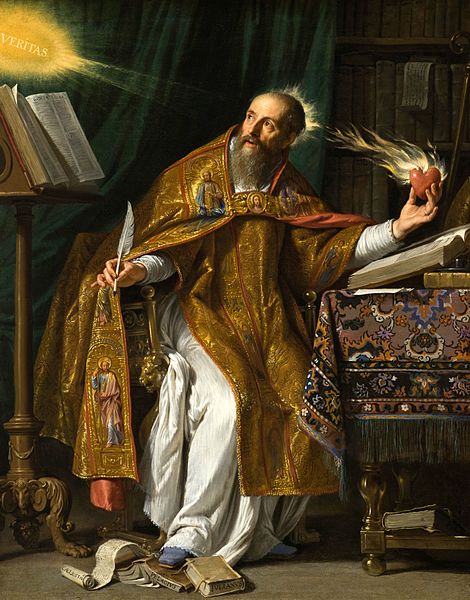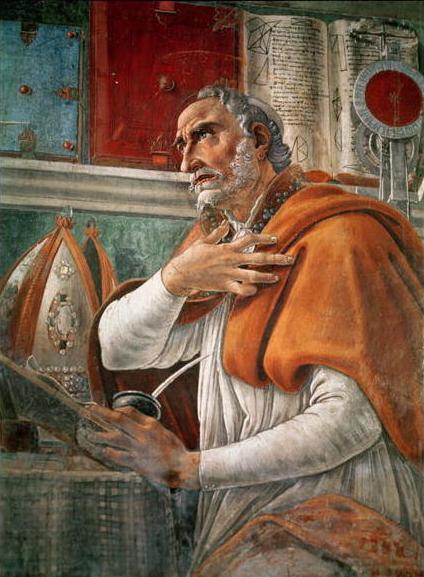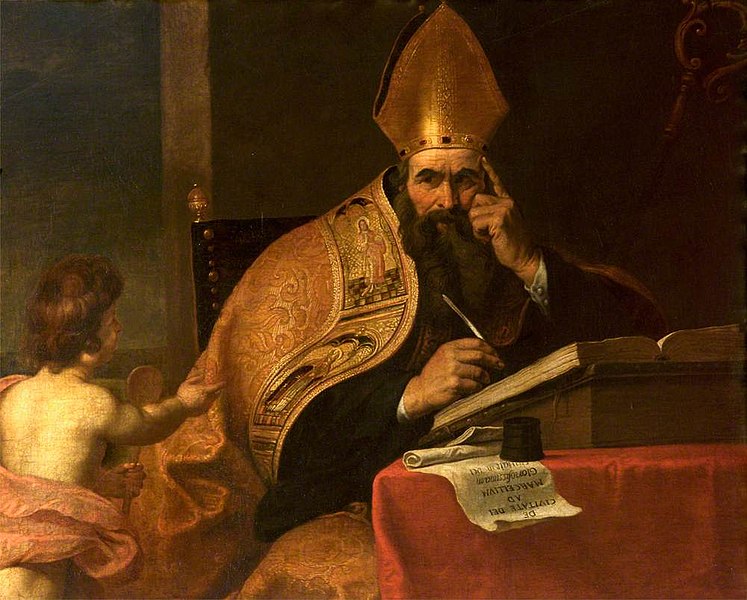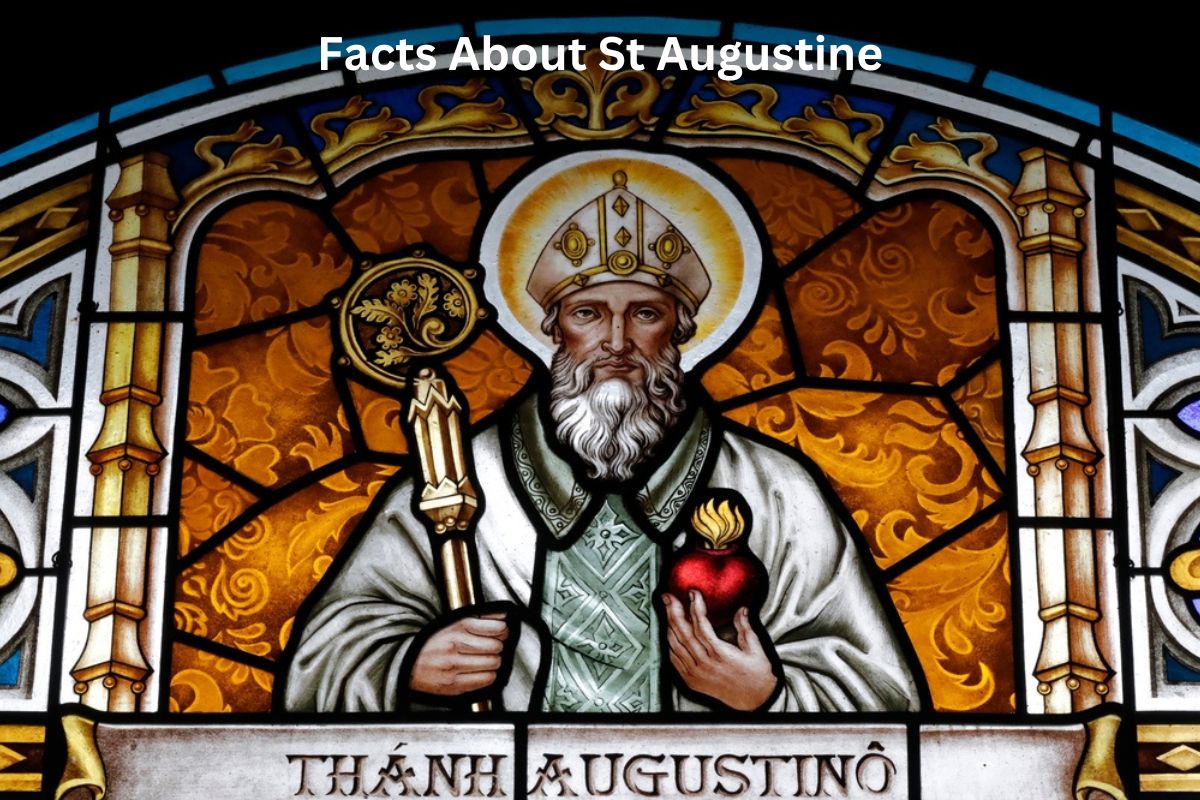St. Augustine, also known as Augustine of Hippo, was a towering figure in the history of Christianity and Western thought.
Born in 354 AD in Thagaste, North Africa (modern-day Algeria), Augustine’s life journey took him from a youth marked by worldly pursuits to a profound conversion to Christianity in Milan.
He later became the Bishop of Hippo, where he authored influential works such as “The City of God” and “Confessions.”
His theological ideas on original sin, predestination, grace, and the problem of evil have left an indelible mark on Christian theology.
Augustine’s writings continue to be studied and revered, making him a central figure in the development of Western philosophy and Christian doctrine.
St Augustine Facts
1. Born on November 13, 354, in Thagaste (modern-day Algeria)
Augustine was born on November 13, 354, in Thagaste, a small town in the Roman province of Numidia, which is located in modern-day Algeria.
Also Read: Facts About St Anne
He was born to Patricius, a pagan Roman, and Monica, a devout Christian. This religious difference in his family would play a significant role in Augustine’s spiritual journey.

2. Converted to Christianity in 386 AD under the influence of Bishop Ambrose
Augustine’s conversion to Christianity is one of the most pivotal events in his life. In his youth, he led a somewhat wayward life, exploring various philosophical and religious ideas. However, his mother, Monica, fervently prayed for his conversion for many years.
In 386 AD, while in Milan, Italy, Augustine had a life-changing experience. While sitting in a garden, he heard a voice that he interpreted as a child’s voice saying, “Take up and read.”
Also Read: St Catherine of Siena Facts
He picked up a copy of the Bible, opened it randomly to a passage in the Epistles of St. Paul, and read a passage that spoke directly to him, urging him to put away his worldly pursuits and follow Christ. This experience led to his conversion to Christianity, and he was baptized by Ambrose, the Bishop of Milan.
3. Served as the Bishop of Hippo (modern-day Annaba, Algeria) from 395 to 430
After his conversion, Augustine pursued a life of Christian scholarship and service. He was ordained as a priest and eventually became the Bishop of Hippo in 395 AD, a position he held until his death in 430 AD.
As bishop, he played a central role in the Christian community of Hippo and in defending the Catholic Church against various theological challenges and controversies of his time, including the Donatist and Pelagian heresies.
4. Wrote “City of God” and “Confessions,” two influential works
Augustine’s work “The City of God” (Latin: “De Civitate Dei”) is considered one of his most significant and enduring contributions. He began writing it in 413 AD and completed it in 426 AD. The book is divided into 22 books and is a complex exploration of theology, philosophy, and history.
In “The City of God,” Augustine responds to the fall of the Roman Empire and addresses the problem of evil. He contrasts the “City of God” with the “City of Man,” arguing that the true Christian citizenship lies in the former, which is eternal and heavenly, rather than the latter, which is temporal and earthly.
This work played a crucial role in shaping Christian political thought and the understanding of the relationship between the Church and the state.
Augustine’s “Confessions” is one of the earliest and most celebrated autobiographical works in Western literature. It was written around 397 AD and is divided into 13 books.
In “Confessions,” Augustine reflects on his personal journey from a life of sin and moral waywardness to his conversion to Christianity.
He discusses his early life, his struggles with worldly desires, and the spiritual awakening that led him to embrace Christianity. The book is also a heartfelt prayer and meditation on God’s grace, forgiveness, and the nature of the human soul.

5. Developed doctrines on original sin, predestination, and grace
Augustine made significant contributions to Christian theology. He formulated several key doctrines that have had a lasting impact on Christian thought. Some of his most notable theological ideas include:
- Original Sin: Augustine developed the concept of original sin, which asserts that all human beings inherit a sinful nature due to the disobedience of Adam and Eve in the Garden of Eden. This idea has profoundly influenced Western Christian theology.
- Predestination: Augustine held the view of predestination, which means that God has predetermined who will be saved and who will be damned. This idea sparked theological debates and controversies, particularly within the Christian Church.
- Grace: Augustine emphasized the importance of divine grace in the salvation of individuals. He argued that humans are saved through God’s unmerited favor rather than their own efforts.
- Free Will: Augustine engaged in a notable theological debate with the British monk Pelagius over the extent of human free will. Augustine argued that human free will is limited by the effects of original sin and that divine grace is necessary for salvation.
These theological doctrines, as articulated by Augustine, continue to be topics of discussion and study in Christian theology and philosophy, and they have left a lasting legacy in Western Christian thought.
6. Received a classical education and was well-versed in philosophy
St. Augustine received a comprehensive classical education and was deeply immersed in the study of philosophy. His early education in Thagaste and Carthage exposed him to the writings of classical Roman and Greek philosophers, such as Cicero and Plato.
Augustine’s proficiency in rhetoric and his philosophical pursuits played a significant role in his intellectual development.
During his youth, he embraced various philosophical traditions, including Manichaeism and Neoplatonism. His exploration of these philosophies contributed to his eventual conversion to Christianity, as he grappled with questions about the nature of reality, morality, and the existence of evil.

7. His writings had a profound impact on Western theology and philosophy
Augustine’s theological and philosophical contributions have left an indelible mark on Christian thought and the development of Christian doctrine. His writings played a significant role in the shaping of the Nicene Creed and the doctrines of original sin, grace, and predestination.
Augustine’s emphasis on the importance of introspection, personal confession, and the experience of God’s grace in the human soul has influenced Christian spirituality and the practice of confession and repentance.
Additionally, his ideas on the relationship between faith and reason laid the groundwork for later medieval scholastic theology.
8. Formulated a theodicy to address the problem of evil
Augustine is known for his formulation of a theodicy, a philosophical and theological response to the problem of evil. In his work “The City of God,” he grappled with the question of why there is evil and suffering in a world created by a benevolent God.
Augustine argued that evil is a result of human free will, specifically the misuse of free will to choose sin. He contended that God allows evil to exist in the world as a means to bring about a greater good, including the redemption of souls.
Augustine’s theodicy has been a subject of discussion and critique for centuries and continues to be studied in contemporary theology and philosophy.
9. Died on August 28, 430, during the siege of Hippo by the Vandals
Augustine passed away on August 28, 430, during the siege of Hippo by the Vandals. This event marked the end of his earthly life.
In honor of his contributions to Christian theology and his enduring influence, the Roman Catholic Church commemorates his feast day on August 28th each year.
This day serves as a time for Christians to remember and celebrate the life and teachings of St. Augustine.
10. His feast day is celebrated on August 28th in the Roman Catholic Church
St. Augustine’s feast day is celebrated on August 28th in the Roman Catholic Church. This date marks the anniversary of his death in 430 AD during the siege of Hippo by the Vandals.
On this day, Catholics and others who honor Augustine’s contributions to Christian theology and spirituality commemorate his life, teachings, and enduring influence.
It serves as a time for reflection on Augustine’s profound impact on the development of Christian thought and the ongoing relevance of his writings in the contemporary world.
